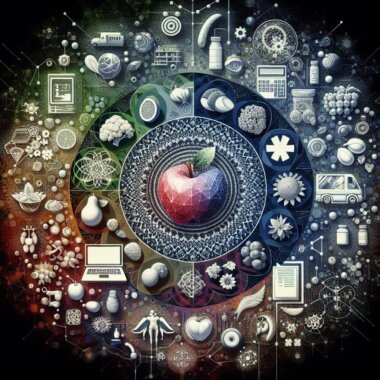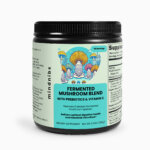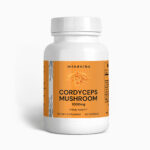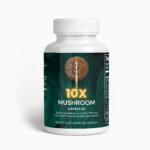
Artificial Sweeteners: Good or Bad?
In the perpetual quest to indulge our sweet tooth without the calorie baggage, artificial sweeteners have emerged as the sweethearts of the dietary world. But like any controversial romance, the relationship between consumers and these sugar substitutes is complicated. Are they the guilt-free saviors of our dessert desires, or hidden villains in our pantry, masquerading as allies? With every packet of artificial sweetener, we sprinkle, stir, and blend, there whispers a question - are these faux sugars friend or foe?
In this deep dive, we will sweeten your knowledge pool without adding a single calorie, as we unravel the myths, explore the science, and taste the bitter truths lying beneath the glossy surface of artificial sweeteners. Are they the key to a healthier lifestyle, or a habit we should quit cold turkey? Sit tight and keep your sugar spoons at bay, as we persuade your palate to consider whether artificial sweeteners are indeed good or bad.
Table of Contents
- Sweet Dreams or Bitter Truth: The Artificial Sweetener Debate
- Navigating the Maze of Sugar Substitutes
- Unwrapping the Controversy: Health Impacts of Artificial Sweeteners
- Your Gut Reaction: How Fake Sugars Influence Digestion
- Craving the Sweet Life: Artificial Sweeteners and Weight Management
- Beyond the Taste Buds: Metabolic Effects of Sugar Alternatives
- Natural vs. Synthetic: Sweetener Choices for a Healthy Lifestyle
- The Verdict on Sweetness: Making Informed Choices for Your Diet
- From Saccharin to Stevia: Choosing Your Sweetener Wisely
- Stirring the Pot: Final Recommendations on Artificial Sweeteners
- Q&A
- Concluding Remarks
Sweet Dreams or Bitter Truth: The Artificial Sweetener Debate

Embarking on a journey to a healthier lifestyle often leads us to the crossroads of choosing between sugar and its synthetic counterparts. With waistlines and well-being at stake, it’s crucial to dissect the ever-present debate surrounding artificial sweeteners. These sugar substitutes promise the sweetness of sugar without the caloric punch, but are they really the guilt-free alternative we yearn for? Let’s take a closer look at the arguments swirling in your cup of morning coffee.
Understanding the Spectrum of Sweetness
- Aspartame: Found in diet sodas and sugar-free gum, adored for its potent sweetness.
- Sucralose: Splashed into baking and beverages, boasts heat resistance and longevity.
- Stevia: Heralded as a ‘natural’ sweetener, derived from the leaves of the stevia plant.
- Saccharin: A veteran in the field, once caught in a cancer controversy, now redeemed by subsequent research.
Each of these options brings a different story to the table, promising lower calories, but with a taste profile and aftertaste that some find less than delightful.
Calories Cut, Cravings Questioned
Proponents applaud artificial sweeteners for their role in weight management, offering a simple formula: replace sugar, reduce caloric intake, lose weight. Yet, some studies suggest a paradox; these sweet swaps might lead to increased appetite and cravings for more sweetness, potentially derailing diets. Critics argue that by tricking our palates, we’re messing with our metabolism, and the body’s ability to regulate energy balance becomes compromised.
| Sweetener | Calories | Aftertaste | Potential Side Effects |
|---|---|---|---|
| Aspartame | 0 | Mild | Headaches in sensitive individuals |
| Sucralose | 0 | Noticeable | Bloating for some users |
| Stevia | 0 | Varies | Lower blood pressure as a possible benefit |
| Saccharin | 0 | Strong | No conclusive adverse effects post-clearance |
In the end, it’s a tango between taste buds and health, with each side stepping to its own rhythm. To choose these sweeteners is to engage with a complex scale of considerations, from individual health goals and metabolic responses to environmental factors and lifestyle choices. The decision is a personal recipe, one that should be concocted with thoughtful attention to the ingredients that work best for you.
Navigating the Maze of Sugar Substitutes

In the ever-expanding world of health-conscious eating, sweeteners spark a hot debate. They sit in your cupboard or at your favorite coffee shop, promising the sweet life without the calories of sugar. But as you reach for that packet of sweetness, it’s crucial to understand the players on the field.
Stevia, derived from the leaves of a South American shrub, is the darling of natural sweeteners. It’s a zero-calorie option that is sweeter than sugar and doesn’t impact blood sugar levels. However, some people note a bitter aftertaste, which could be a deal-breaker for your taste buds.
- Heat stable – perfect for cooking and baking
- Available in liquid and powdered forms
- No known impact on dental health
On the artificial front, aspartame and sucralose are heavy hitters. Their sweetness dwarfs that of sugar, allowing you to use less for more sweetness. Aspartame, found in brands like Equal and Nutrasweet, is best for sweetening drinks and desserts that don’t require high heat, as it can break down and lose sweetness when cooked. Sucralose, the sweetening agent in Splenda, is versatile and is heat stable, so it can be used in a wider range of culinary pursuits without a hitch.
| Sweetener | Calories per teaspoon | Sweetness relative to sugar |
|---|---|---|
| Stevia | 0 | 200-300 times |
| Aspartame | 0 | 180 times |
| Sucralose | 0 | 600 times |
Remember, the choice of sweetener isn’t just about calories – it’s about your wellbeing. Artificial sweeteners can trick your brain into craving more sweets, an unwelcome nudge for those looking to curb their sugar intake. Natural counterparts like Stevia, though preferable for their unprocessed origins, come with their own baggage of taste adaptation. The message is clear: tune into your body’s responses, be moderate in consumption and let your palate (along with sound research) be your guide. After all, the ultimate goal is not just to sweeten your treats, but nurture your health for the sweetest life possible.
Unwrapping the Controversy: Health Impacts of Artificial Sweeteners

When the topic of artificial sweeteners springs up in conversation, opinions can be as mixed as a sugar-free cocktail. On one side, **enthusiasts tout their calorie-sparing sweetness**, seeing them as a modern boon for weight management and diabetic control. On the flip side, skeptics raise flags about potential health hazards, seeding doubt with studies that suggest a not-so-sweet aftermath.
Diving into the heart of the debate, let’s scan the landscape of **scientific research**. Over the years, numerous studies have attempted to decode the effects of these synthetic sugar substitutes. While some findings indicate that consuming artificial sweeteners may lead to reduced calorie intake and subsequent weight loss, other studies have linked them to increased appetite and weight gain over time. It’s a whirlwind of conflicting results, and the truth is, the jury is still out on their long-term impact.
Without ignoring the cautionary tales, it’s important to acknowledge the FDA’s stance in this sugary saga. The agency has given the green light to several sugar alternatives, including aspartame, saccharin, and sucralose, classifying them as “generally recognized as safe” (GRAS). Nevertheless, moderation is key, and some experts advocate for a balanced approach — enjoying these sweeteners in limited quantities while maintaining a diet rich in whole food nutrients.
Take a look at the table below highlighting some common artificial sweeteners and their characteristics:
| Sweetener | Calories | Sweetness (Relative to Sugar) | Notable Use-cases |
|---|---|---|---|
| Aspartame | 0 | ~200x | Diet sodas, tabletop sweeteners |
| Saccharin | 0 | ~300x | Sugar-free gum, pharmaceuticals |
| Sucralose | 0 | ~600x | Baked goods, no-calorie drinks |
| Stevia | 0 | ~150-300x | Natural food products, teas |
As savvy consumers, we should stir our own cup of knowledge, blending facts with personal health considerations. For those with a sweet tooth, artificial sweeteners may serve as a hiatus from high-calorie sugars, but understanding their respective profiles and potential repercussions is crucial. Whether sweeteners are friend or foe in the pursuit of health, the power lies in educated choices and an individual approach to diet.
Your Gut Reaction: How Fake Sugars Influence Digestion
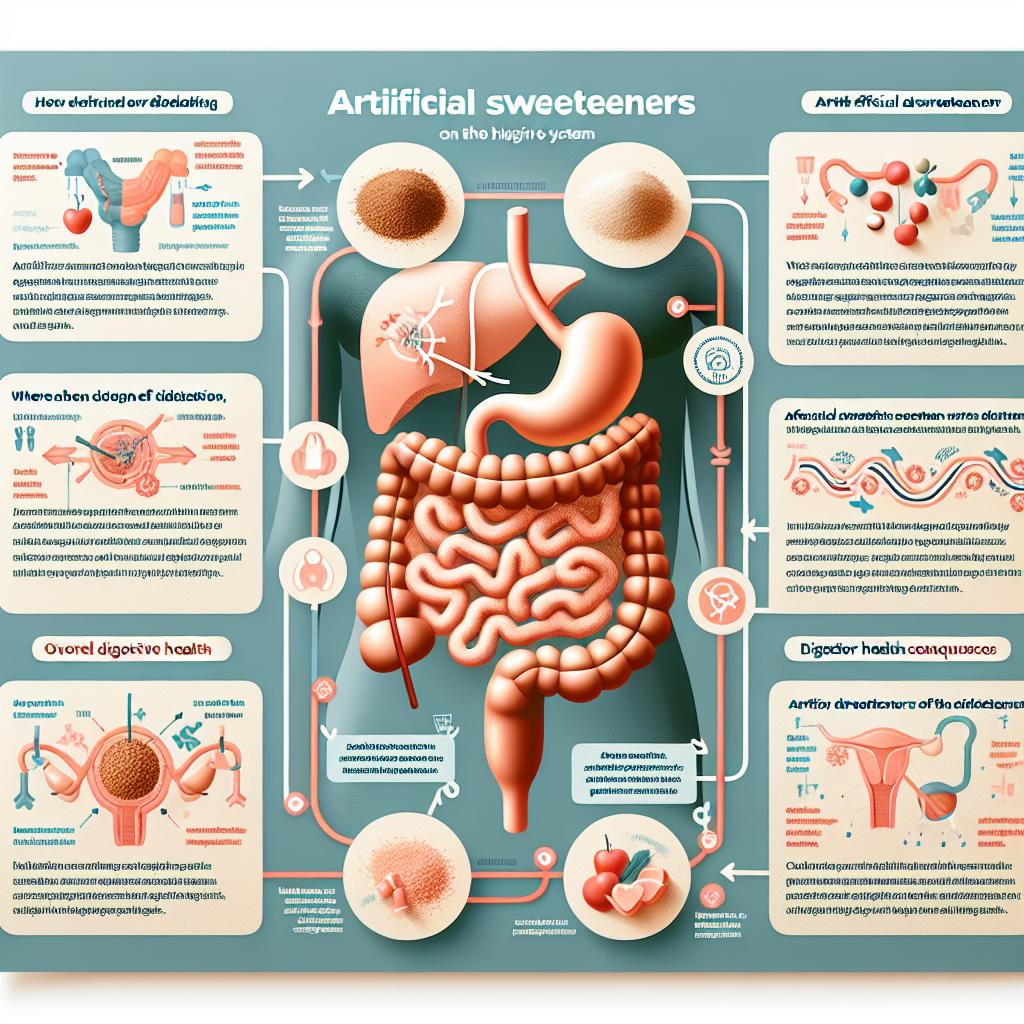
The debate around artificial sweeteners often leaves a sour taste in the mouths of health enthusiasts. When it comes to digestive health, the sugar substitutes in your diet soda or sugar-free yogurt have more of an impact than you might expect. After all, your gut doesn’t just break down food; it’s a complex ecosystem that communicates with your brain, influencing overall health.
Consider this: the moment a diet drink passes your lips, the body gears up for sugar, but zero calories leave it baffled. Why does this matter? Because the fake sweet stuff can potentially disrupt your body’s ability to gauge calorie intake, leading to poorer metabolic responses and even weight gain. It’s a bit ironic that products designed to help manage weight could lead us down the opposite path.
- Altered Gut Microbiota: Artificial sweeteners such as aspartame, sucralose, and saccharin can negatively affect the balance of bacteria in the gut. These tiny tenants play a vital role in digestion, immunity, and more, so knocking them off-kilter can have widespread consequences.
- Reduced Glycemic Control: While initially believed to aid in controlling blood sugar, some studies suggest that these sweeteners could lead to glucose intolerance by altering gut flora.
- Potential for Increased Appetite: The sweetness without calories can confuse your brain’s reward pathways, possibly stirring up more cravings and an increased appetite.
| Sweetener | Potential Impact on Digestion |
|---|---|
| Aspartame | Might disrupt neurotransmitter balance and gut bacteria |
| Sucralose | May decrease good bacteria and alter pH levels |
| Saccharin | Could lead to inflammation and gut dysbiosis |
Given these potential tripwires in our digestion tract, it’s worth considering the long game. Are the short-term benefits of swapping sugar for its artificial counterpart worth the potential disruption to your gut ecosystem? It’s not about fear-mongering but about making informed choices. By listening to our bodies and choosing whole, unprocessed foods whenever possible, we pave the path toward better health and digestion – and that’s something sweet you don’t have to fake.
Craving the Sweet Life: Artificial Sweeteners and Weight Management

Imagine you’re strolling through the golden gates of a sugar-free paradise—a place where you can indulge without a single calorie lurking in your treat. This is the promise of artificial sweeteners, mighty molecules that dance on your taste buds, delivering the punch of sweetness without the waist-expanding consequences. But before you pledge your loyalty to these synthetic saviors, let’s peel back the wrapper and see what’s really inside.
These nifty no-calorie options, such as aspartame, sucralose, and stevia, come with an appealing pitch: satisfy your sweet tooth without tipping the scales. However, it’s not just about the absence of sugar-related calories. Some studies suggest a paradoxical effect—contrary to assisting with weight management, these sweeteners may actually provoke a craving for more food, potentially leading to weight gain. It’s like opening a Pandora’s box of insatiable hunger, where every guilt-free sip might nudge you towards a larger slice of actual cake.
- Increased Appetite: Artificial sweeteners may trigger appetite-regulating hormones, fooling your body into expecting energy-rich food.
- Metabolic Confusion: Your body might get confused when sweetness isn’t followed by a calorie flood, possibly disrupting your metabolism.
- Sweet Addiction: Frequent consumption might lead to a heightened desire for sweetness, making it harder to appreciate naturally sweet foods.
Let’s not disregard the role of these sweet substitutes in special diets and health conditions such as diabetes. There’s a silver lining to these cloud-like powders and liquids. When consumed in moderation, they could be the magic wand for those looking to manage dietary sugar intake or calories. The key is balance—like a tightrope walker, one must find the perfect equilibrium between use and overindulgence.
However, when it comes to transforming lifestyles and shaping waistlines, might we be better off with fewer artificial friends? Here’s a look at some alternatives:
| Substitute | Benefits | Considerations |
|---|---|---|
| Honey | Rich in antioxidants | Higher in calories |
| Maple Syrup | Contain minerals and antioxidants | Still a sugar, use in moderation |
| Coconut Sugar | Low glycemic index | Caloric content comparable to sugar |
Choosing a path through the sweetener jungle can be as daunting as choosing the ripest fruit in an orchard. While artificial sweeteners are not the villains they’re sometimes made out to be, they’re also not the heroes we often crave. In the tapestry of our diet, they are but a single thread—integral in moderation, but not the solution to the complex puzzle of weight management.
Beyond the Taste Buds: Metabolic Effects of Sugar Alternatives

When we think of sugar substitutes, the first thing that often comes to mind is how they can help us indulge in our favorite sweet treats without the guilt of extra calories. Yet, these substitutes do more than just trick our palates; they also interact with our body in complex ways. Some sugar alternatives may have a minimal impact on your blood glucose levels, making them an attractive option for people managing diabetes or those trying to reduce their sugar intake.
However, the story doesn’t end with blood sugar control. Studies have started to shed light on the potential metabolic consequences of frequent consumption of artificial sweeteners. For instance, some research indicates that regular intake could disrupt the balance of your gut microbiota – an integral component of your digestive health. This can lead to changes in both metabolism and appetite regulation, which may inadvertently affect your body weight and overall health.
| Sweetener | Glycemic Index | Calories | Aftertaste |
|---|---|---|---|
| Stevia | 0 | 0 | Slight |
| Aspartame | 0 | 4 per gram | Noticeable |
| Sucralose | 0 | 0 | Minimal |
| Xylitol | 7 | 2.4 per gram | None |
Moreover, our understanding of how artificial sweeteners interact with our bodies is continuously evolving. Insulin response is one area under scrutiny. While sugar alternatives are often zero-calorie, some can trigger the release of insulin similarly to sugar, which could impact insulin sensitivity over time. This is particularly important for individuals watching their glycemic load, such as those with insulin resistance or type 2 diabetes.
- Propensity to Indulge: Knowing a product is sugar-free might lead to increased consumption.
- Taste Education: Regularly consuming sweeteners might heighten a craving for sweet foods.
- Long-term effects: Research on the prolonged use of artificial sweeteners is ongoing, with mixed results on their safety and impact.
In the realm of nutrition, the advice that never falters is moderation. Whether choosing natural or artificial sweeteners, it’s essential to understand their potential impact beyond taste. A balanced approach, combined with regular physical activity and a nutrient-dense diet, may be the wisest path to health and happiness for your sweet tooth and your body.
Natural vs. Synthetic: Sweetener Choices for a Healthy Lifestyle

When it comes to sweetening your morning cup of coffee or perfecting a batch of your favorite cookies, you’re faced with the age-old dilemma: do you reach for the white granulated promise of natural sugar, or do you opt for the calorie-free allure of synthetic sweeteners? It’s a topic that’s as hotly contested in health circles as it is in culinary debates.
Natural sugars, ever-present in fruits, honey, and sugar cane, are known for their wholesomeness and straightforwardness. However, they’re not free of criticism; their caloric density and impact on blood glucose levels can’t be ignored. On the flip side, artificial sweeteners such as aspartame, sucralose, and stevia offer the sweetness without the calorie hit – a tempting proposition for weight watchers and diabetics alike.
- Caloric Content: Sugar packs a heavy punch with about 16 calories per teaspoon, which can add up quickly in your daily diet. Artificial sweeteners, in contrast, typically have less than 5 calories per serving, making them an attractive alternative for those managing their energy intake.
- Impact on Health: Studies have provided mixed results, with some suggesting that artificial sweeteners may have adverse effects on metabolism and gut health, while others advocate for their safety when consumed in moderation. Natural sugars, while affecting blood glucose, don’t carry the same level of scrutiny in terms of chemical structure but can contribute to weight gain and dental problems.
However, it’s not merely a black-and-white choice between natural and synthetic – it’s about understanding the shades of grey that come with each option. To aid in this comparison, let’s take a glance at a succinct table presenting key sweeteners and their characteristics:
| Sweetener | Type | Calories | Sweetness vs. Sugar |
| Cane Sugar | Natural | 16 cal/teaspoon | Equal |
| Stevia | Synthetic | 0 cal/teaspoon | Up to 300x sweeter |
| Honey | Natural | 21 cal/teaspoon | Less sweet |
| Aspartame | Synthetic | Less than 5 cal/serving | Approx. 200x sweeter |
The essence of the matter lies in personal choice and the context of your overall diet and health goals. Whether you choose to indulge in the bounty of nature or lean towards the innovation of science, be sure to consider your sweeteners’ impact on your health, palate, and the planet. Moderation, after all, is key in the quest for a balanced and healthy lifestyle.
The Verdict on Sweetness: Making Informed Choices for Your Diet
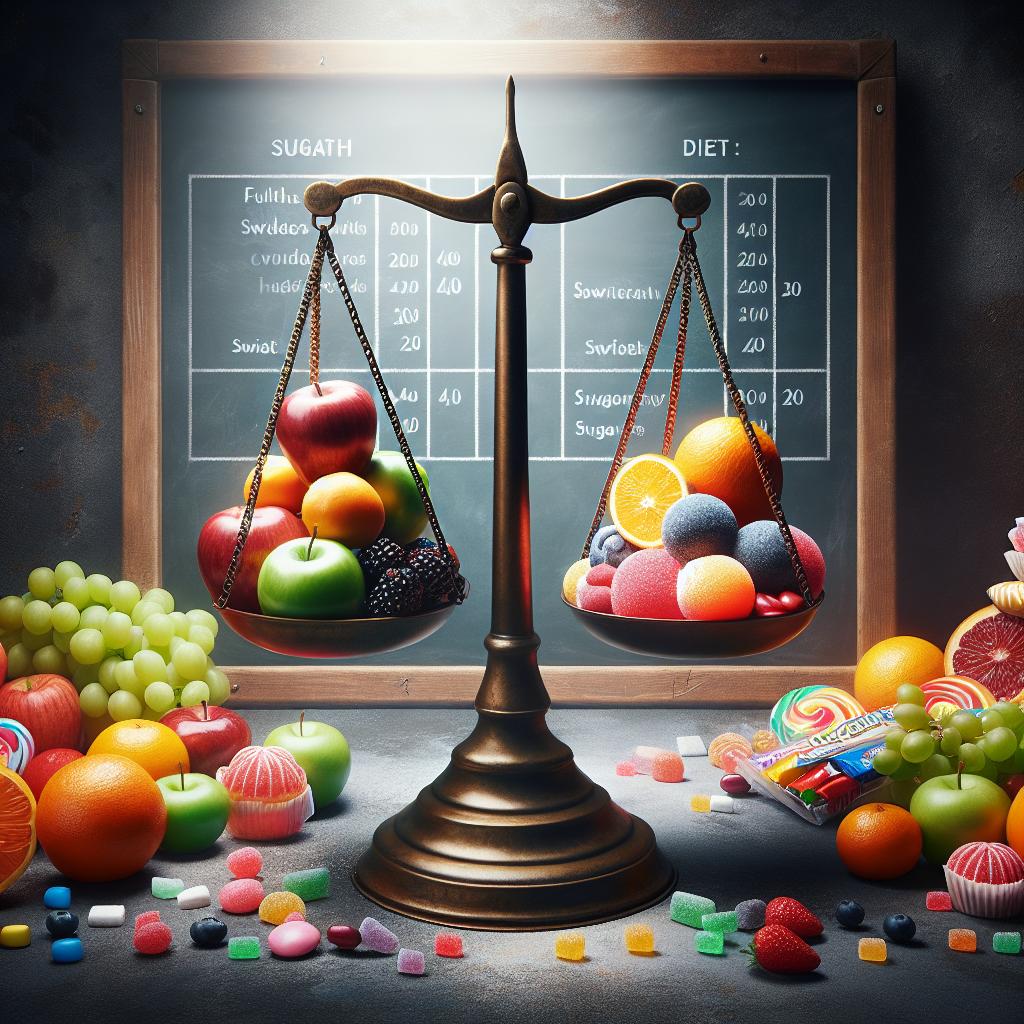
When it comes to sweetening your morning cup of coffee or satisfying that afternoon sugar craving, the choices can be bewildering. On one hand, we have the traditional, calorific sugar, and on the other, a plethora of artificial sweeteners each promising the sweetness we desire without the accompanying calories. But before you reach for that packet of non-natural sugar substitute, let’s weigh in on what they mean for your well-being.
Firstly, let’s talk about calorie control. Artificial sweeteners are like the magicians of the food world—delivering the pleasure of sweetness without the calorie load of sugar. They can be incredibly helpful for those managing diabetes or looking to maintain a healthy weight. However, it’s crucial to understand that moderation is key. Although swapping sugar for sweeteners can reduce calorie intake, overindulgence can still lead to unhealthy eating patterns and even cravings for more sugary foods.
- Saccharin (Sweet’N Low) - Oldest of the bunch; some find its taste peculiar.
- Aspartame (Equal, NutraSweet) – Heat-sensitive and not suitable for cooking; has a taste profile closest to sugar.
- Sucralose (Splenda) – Can withstand high temperatures, making it recipe-friendly; however, some studies suggest a possible link to gut health issues.
- Stevia (Truvia, Pure Via) – Plant-based and perceived as ‘natural’; a safe option for many but can have a bitter aftertaste.
Consider also the environmental footprint of these sweeteners. While sugar crops like sugarcane can be resource-intensive, requiring large amounts of water and land, the production process for artificial sweeteners often involves complex chemical synthesis which could have an environmental impact as well. Striking a balance between personal health and environmental sustainability can be tricky, but being informed helps us make better choices.
| Sweetener | Calories | ADI* | Sweetness (relative to sugar) |
|---|---|---|---|
| Saccharin | 0 | 5 mg/kg body weight | 300-400x |
| Aspartame | 4 per gram | 50 mg/kg body weight | 200x |
| Sucralose | 0 | 5 mg/kg body weight | 600x |
| Stevia | 0 | 4 mg/kg body weight | 200-300x |
| *Acceptable Daily Intake | |||
Inching towards a verdict requires a blend of personal needs and scientific insight. The truth is, while artificial sweeteners can be a part of a health-conscious lifestyle, they’re not a silver bullet. They must be used wisely and as part of a balanced, nutrition-rich diet. Instead of fixating on finding a one-size-fits-all answer, maybe the question we should be asking is how can we sweeten our lives in ways that nourish both our bodies and our souls?
From Saccharin to Stevia: Choosing Your Sweetener Wisely

Embarking on a sweet odyssey doesn’t have to be a guilt trip. With the array of sugar substitutes at our fingertips, it’s essential to navigate this world with a blend of curiosity and caution. Among the darlings of sweeteners, saccharin stands out as a veteran. Launched into the spotlight as one of the first artificial sweeteners, it boasts a zero-calorie promise. On the other end of the spectrum, stevia, a natural extract, sweeps in with its plant-based pedigree, emitting a siren call for the health-conscious.
Scrutinizing the shelves laden with sweet promises, one should consider the flavor profile and aftertaste. Artificial sweeteners, while adept at cutting calories, can leave an unusual aftertaste that might not sit well with everyone’s palate. Enter stevia with its natural origins, delivering a sweetness that is closer to sugar’s profile but can also have a licorice-tinged twist. Here’s a sweetener slice to consider:
- Saccharin: Best for those who aren’t sensitive to its metallic aftertaste.
- Stevia: Suited for natural sweetener enthusiasts; beware of possible bitterness.
- Aspartame: Another artificial contender, suitable for cold dishes and drinks.
- Sucralose: For the heat-resistant sweet appeal in baking and cooking.
Diving deeper into this sweet sea, the impact of our choices on health becomes paramount. Saccharin and its artificial kin have come under fire for potential health risks, though many studies find them safe in moderation. Meanwhile, stevia prides itself on having a negligible effect on blood glucose levels, making it a beacon for those managing diabetes.
| Sweetener | Calorie Count | Best Used In | Considerations |
|---|---|---|---|
| Saccharin | 0 | Beverages, General Sweetening | Moderation Matters |
| Stevia | 0 | Desserts, Tea/Coffee | Flavor Profile |
| Aspartame | Low | Cold Dishes/Drinks | Not for Cooking |
| Sucralose | 0 | Baking, Hot/Cold Beverages | Heat Stable |
In summary, when it’s time to sprinkle that dash of sweetness into your life, deliberate which spoonful aligns with your health goals and taste buds. Whether opting for the timeless saccharin or the trending stevia, the selection of sweeteners is vast, their stories varied. Tune in to your body’s responses, explore scientific insights, and you’ll empower your sweet tooth with wisdom rather than mere whim.
Stirring the Pot: Final Recommendations on Artificial Sweeteners
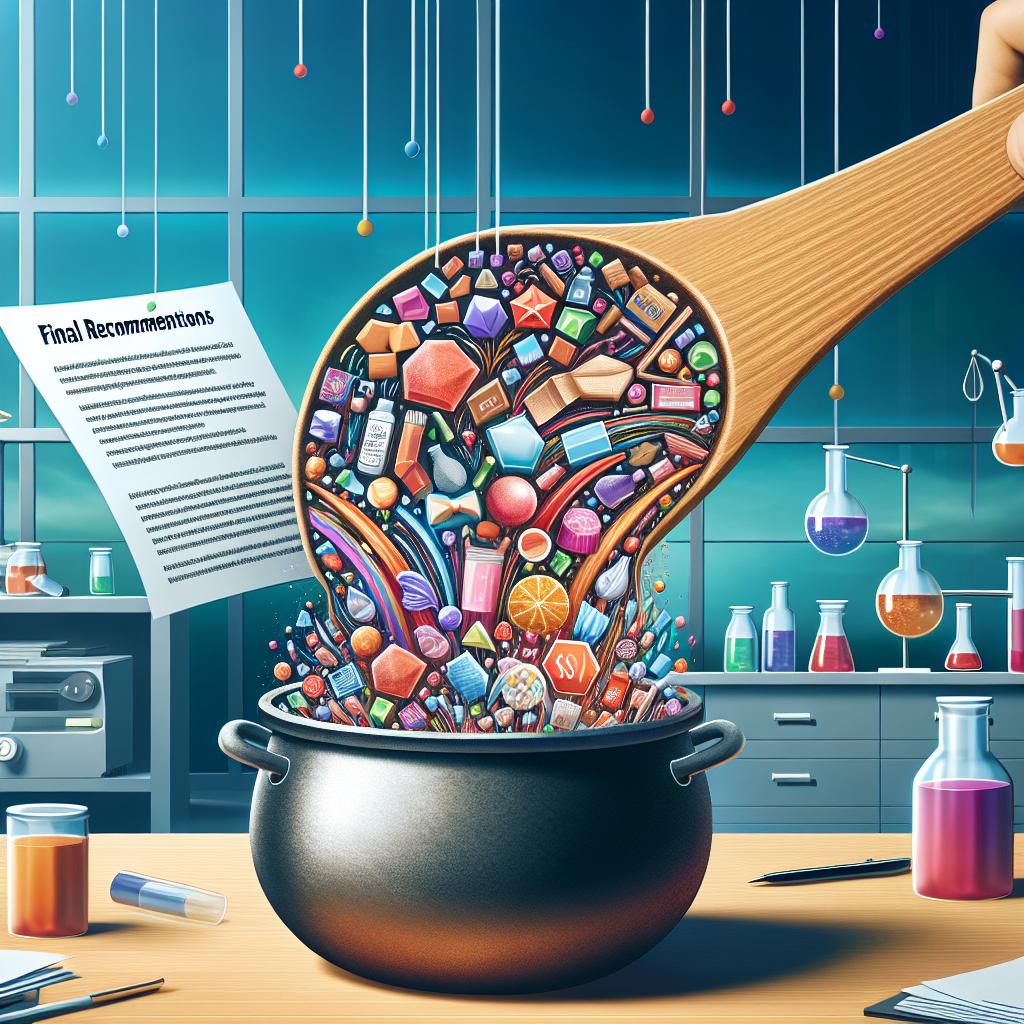
When it comes to artificial sweeteners, wading through the sea of information—and misinformation—can be daunting. Here’s the scoop: moderation is key. As with all aspects of diet and nutrition, the right balance is essential. Use artificial sweeteners wisely, and they can be a helpful tool in managing weight and blood sugar levels. However, shifting entirely to these sugar substitutes can be counterproductive, potentially altering your taste preferences and leading to a different set of health concerns.
The array of sweeteners on the market is vast, but certain options stand out for their balance of safety and taste. Stevia, derived from the leaves of the Stevia rebaudiana plant, is a powerhouse—no calories and no blood sugar impact. Erythritol, a sugar alcohol, is another star; it’s almost as sweet as regular sugar, yet it has minimal calories and doesn’t spike blood sugar. Remember though, all sugar alcohols can cause digestive upset in some people, so listen to your body.
| Sweetener | Calories | Impact on Blood Sugar |
|---|---|---|
| Stevia | 0 | None |
| Erythritol | 0.24 per gram | Minimal |
| Aspartame | 4 per gram | Low |
Before you revamp your pantry, consider this: pairing artificial sweeteners with a diet rich in whole foods can be a strategic move. Use them to curb the sugary cravings, but don’t neglect the fruits, veggies, whole grains, and proteins that provide a host of other necessary nutrients. Be mindful of the following guidelines:
- Aim for variety. Rather than sticking to one type of sweetener, try different kinds to minimize potential risks.
- Know your sweeteners. Not all sugar substitutes are created equal. Read labels and research their backgrounds, from plant-based options like Stevia to those created in a lab.
- Understand the trade-offs. While artificial sweeteners can help with diabetes management, they aren’t a silver bullet and should be part of a broader nutritional strategy.
- Practice moderation. Overindulgence in sugar alternatives can still lead to weight gain and cravings for sweet foods.
Artificial sweeteners aren’t inherently evil nor a dietary elixir. They are tools that, used judiciously, can serve a valuable role in your food choices. By being informed and mindful, you can make artificial sweeteners work for you, not against you. Embrace the sweet life, just ensure it’s a balanced one.
Q&A
### Q&A Section: Unraveling the Sweet Mystery – Are Artificial Sweeteners a Blessing or a Bane?
#### Q: What exactly are artificial sweeteners, and where can we commonly find them?
**A:** Often hailed as the modern elixir of sweetness, artificial sweeteners are synthetic sugar substitutes. They’re the covert agents in diet sodas, sugar-free gums, and light yogurts, masquerading as the guilt-free equivalents to their caloric counterparts. Their claim to fame? Delivering the sweetness we crave without the calorie baggage.
#### Q: Do artificial sweeteners actually help with weight loss?
**A:** Ah, the million-dollar question! It’s a seductive notion, isn’t it? Sip and nibble on sweet nothings while watching the pounds melt away. In theory, since these sweet decoys are low or zero-calorie, they should aid in weight management. However, the plot thickens when some research suggests they might ironically contribute to weight gain by stirring up hunger and affecting gut health. Choose your sweet allies wisely.
#### Q: Are artificial sweeteners safer for diabetics than sugar?
**A:** Picture this – a sweetener that doesn’t spike your blood sugar levels. Sounds dreamy for diabetics, right? Artificial sweeteners can indeed be diabetic-friendly chaperones, as they tend to have a minimal impact on blood glucose. However, don’t be wooed too quickly. It’s essential to balance this sweetness with an awareness of your overall dietary patterns and consult with a healthcare provider.
#### Q: But here’s the crunch – are artificial sweeteners bad for our health?
**A:** The narrative of artificial sweeteners has more twists than a mystery novel. Some studies suggest possible links to health concerns – headaches, digestive issues, and even long-term ailments when consumed in excessive doses. Conversely, official food safety authorities have given many of these sweeteners their blessing when used in moderation. The key? Moderation. Listen to your body and a chorus of medical advice, not just the whispers of convenience.
#### Q: Can artificial sweeteners affect our sweet tooth and cravings?
**A:** Imagine tickling your taste buds with synthetic sweetness, only to have them crave more. Some epicurean experts argue that these faux sugars can overstimulate our sugar receptors and make natural, less overtly sweet foods, like fruit, less appealing. The verdict? They might be training your palate to seek out more sweetness – a potentially vicious cycle.
#### Q: If I’m considering cutting down on artificial sweeteners, what are some natural alternatives?
**A:** If you’re looking to break up with synthetic sweethearts, Mother Nature has your back with a bounty of suitors. Think raw honey’s golden drizzle, the caramel kisses of dates, or the pure, earthy sweetness of maple syrup. They come with their own calories but also bring nutrients to the table. Embrace these natural charmers but remember, even these alternatives desire a slow dance, not a rambunctious tango.
#### Q: Convince me – should I or should I not welcome artificial sweeteners into my life?
**A:** Step into the grand ballroom of choices and consider this – moderation and mindfulness are your esteemed dance partners. Artificial sweeteners, when used judiciously, can sashay into a balanced diet without stepping on too many toes. But, if you seek a dance that’s in harmony with nature, and you’re willing to embrace a sprinkle of mindfulness over a cascade of convenience, then you may want to let natural sweeteners lead. Let’s waltz towards a lifestyle that honors health without compromising on the joys of sweetness. The sweet spot, you see, is yours to find.
Concluding Remarks
As we’ve whisked through the complexities and sprinkled facts across the spectrum of artificial sweeteners, the lingering aftertaste of our exploration poses the ultimate question: are these sugar substitutes friend or foe? It’s imperative to remember that life, much like our diets, isn’t simply black or white; it’s an entire palette of shades.
Sweetness doesn’t have to be a sinful indulgence, nor does it require a compromise on health. The key ingredient is balance. Mindfully incorporating or avoiding artificial sweeteners is a recipe for wellbeing that’s tailored to your body’s unique needs and your lifestyle’s demands.
We’re each the master chefs in the kitchens of our health. So, as you deliberate over your next grocery list or scan the menu at your favorite café, consider the layers of information we’ve sifted through. Let your choices be guided by the sweet synergy of knowledge and moderation.
And now, armed with enlightenment, you’re equipped to choose your path. Will you sweeten your cup with a sprinkle of caution, or will you pass the artificial in pursuit of the natural? The power of that choice is, as always, in your hands.
Indulge wisely, savor healthily, and live vibrantly. Here’s to making choices that satisfy not only our taste buds but also nourish our well-being. Cheers to the sweet life, naturally balanced and delightfully yours.




